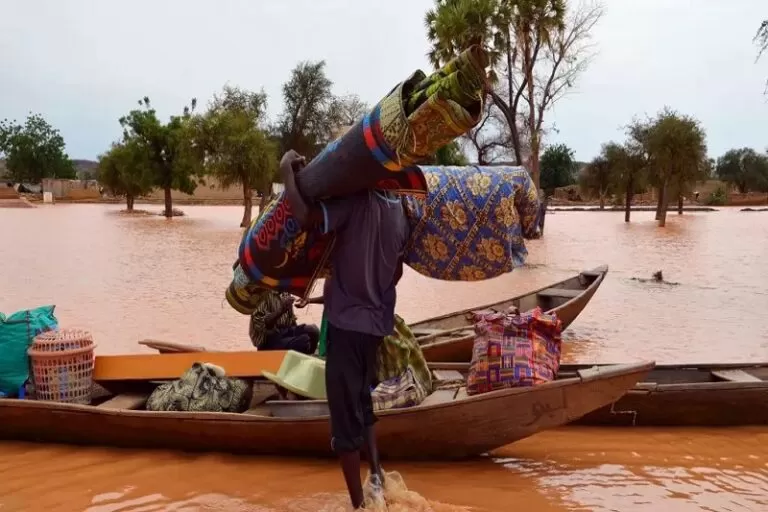

rains in niger killed more than 160 people and affected 225, 000 others
Last updated on September 21st, 2022 at 07:50 am
Since June, Niger has been hit by persistent and heavy rainfall, which has resulted in severe flooding, which has claimed the lives of 159 people and impacted over 225,000 others. Because of this, this country, which is usually dry, is having one of its wettest and, as a result, one of its deadliest rainy seasons ever.
121 people lost their lives when their homes collapsed, and 38 people drowned, according to the numbers that the Civil Protection authorities provided to AFP on Monday. A total of 159 people lost their lives as a result of the disaster. According to the same report, there were 185 people injured and 225,539 people affected by the incident.
The number of people who have lost their lives as a result of these severe weather conditions continues to rise with each passing week. The most recent report, which was issued on September 4th, said that 103 individuals had died and 140,000 more had been impacted. Most people have died in the areas around the cities of Maradi (in the south-central region; 68 deaths), Zinder (in the east-central region; 48 deaths), Dosso (in the southwest region; 18 deaths), and Tahoua (in the west region; 16 deaths).
In addition, more than 25,900 homes (including houses, huts, and shelters), 71 classrooms, 6 health care facilities, and 210 grain silos were entirely wiped out or sustained damage as a result of the rains. Additionally, there were close to 700 heads of livestock that perished. According to a warning from the Nigerien Ministry of Agriculture, the harsh weather has also helped bring in insects that are considered “pests” of crops. Insecticides have been used to treat areas that were infested.
The forecast is for more “heavy rains” up until the end of September, according to the meteorological services. If the rains do not stop, the city of Niamey, which is home to two million people and has been spared to a large extent up until this point, will likely be inundated by the Niger River. The officials there are quite concerned about this possibility.
Messages urging citizens to “be attentive” and “evacuate flood-prone regions” are being aired over the airwaves by the services that are responsible for civil protection. The rainy season in Niger, which runs from June to September, is known to be a leading source of mortality throughout the country, including in the arid regions of the north; nonetheless, the death toll is disproportionately high this year. In the year 2021, there were 70 fatalities, and 200,000 people were impacted.
According to the authorities in charge of health care, more than 4.4 million people in Niger are facing “severe” food insecurity. This accounts for twenty percent of the country’s total population. Niger is already in the midst of a significant food crisis.
Vida e Caffè achieved a major milestone when they opened their 300th South African outlet in Secunda Mpumalanga making it…
The Trade Promotion Organization of Iran revealed its plan to launch a special shipping line to West Africa through its…
Expansion in the global rare earth industry makes Africa stand out by predicting this region will reach 10% market supply…
Exxaro Resources Limited chose Ben Magara to lead the company as CEO starting April 1, 2025. The firm conducted an…
The National Treasury reduced the VAT tax increase to end the government coalition conflict in South Africa. The Finance Minister…
The International Finance Corporation (IFC) enabled South African green building growth by giving $250 million to Standard Bank for an…
This website uses cookies.